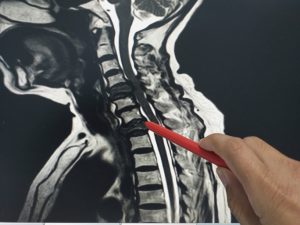
When a person experiences brain or spinal cord damage, they can suffer some of the most severe and catastrophic disabilities. Permanent physical impairment, loss of function of body parts, changes in intellectual or emotional composition, and inability to work or live independently are all common outcomes of these sorts of accidents. Because these sorts of injuries are so severe and life-changing, victims need the assistance of a specialist who can help them navigate the settlement negotiating process following an accident.
Traumatic Brain Injuries (TBIs) and Spinal Cord Injuries (SCI)
TBIs, or traumatic brain injuries, are damage to the brain’s soft tissue. TBIs are divided into various categories, including:
Hematomas, or blood clots, can form after a serious head injury. Depending on the degree of the injury and where it is placed, they might be minor or life-threatening.
Fractures of the skull. The soft tissue of the brain can be affected by skull fractures. Depending on the severity of the fracture and if the bone penetrates the brain, this can result in a catastrophic, life-long damage or a minor injury that heals quickly. The amount of edema that occurs after a head injury affects the severity of the brain damage.
Even if there is no obvious damage on the exterior of the skull, a bruise to the brain might occur. In vehicle accidents, these sorts of injuries, sometimes known as coup and contrecoup injuries, are prevalent.
Axonal damage that is widespread. When rotating forces press violently on the brain, breaking nerve and cell connections, a DAI occurs. These injuries are usually not evident at first, but they might have long-term consequences for the person.
Spinal cord injuries can also be classified according to where they occur
Although a catastrophic SCI at the top of the spine, such as a broken neck, might result in full-body paralysis, upper spinal injuries generally affect the arms and chest. The victim may or may not ever regain use of the limbs and body components below the neck, depending on the severity of the damage.
Partial paralysis, such as that of the legs alone, is common as a result of lower spinal injury. Even if the sufferer can still use his or her arms, a permanent damage results in a loss of independence that will impact the victim for the rest of his or her life.
Work with a personal injury attorney who understands these injuries
If you have suffered a spinal cord or traumatic brain damage, you are entitled to financial compensation. It is critical not to depend entirely on the word of insurance companies and their personnel in order to receive the full amount to which you are entitled. In fact, you could benefit from speaking with an attorney who has years of expertise resolving instances like this.
You can do this easily by calling Law Offices of Fernando D. Vargas to request a free legal consultation.




